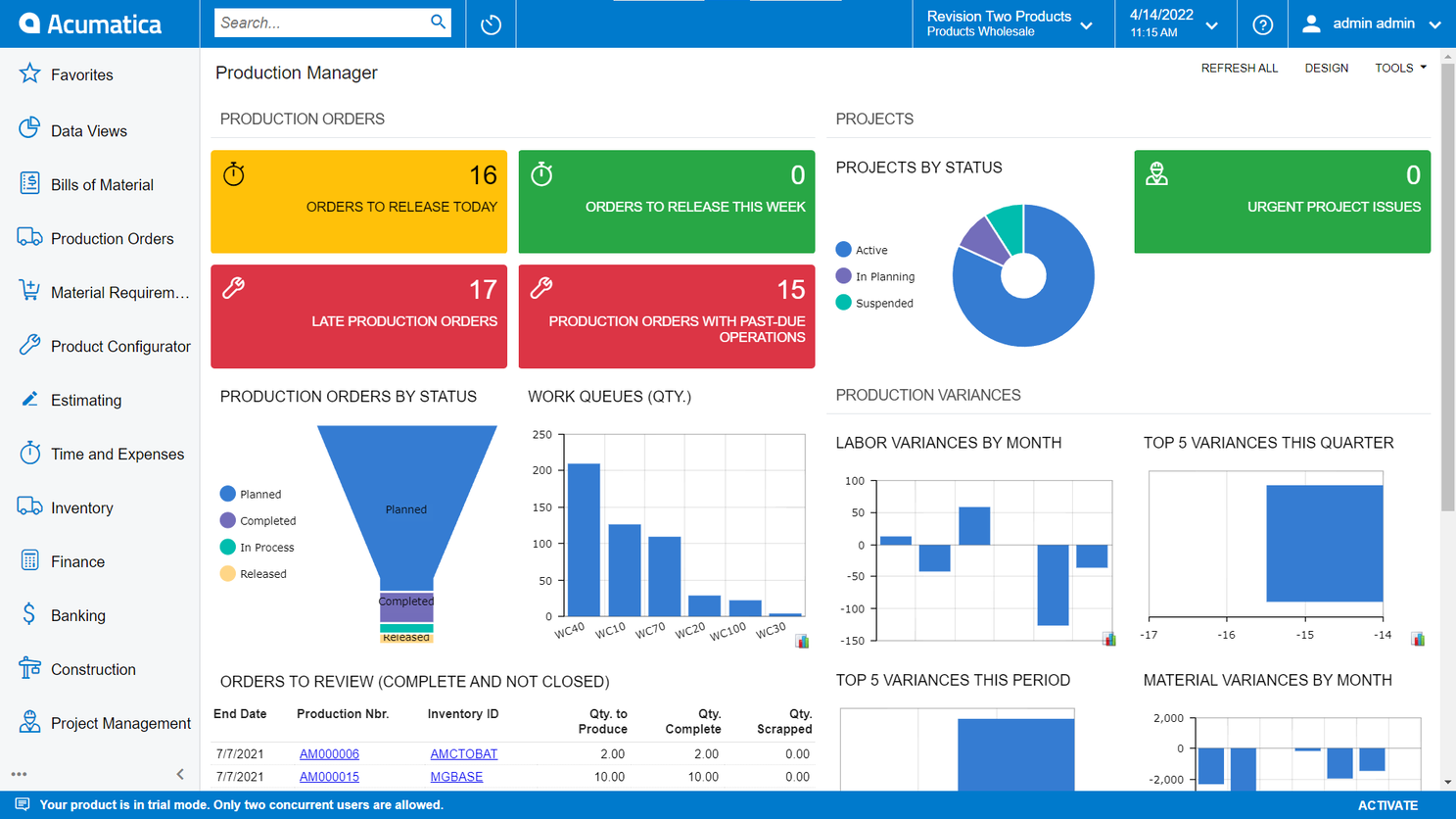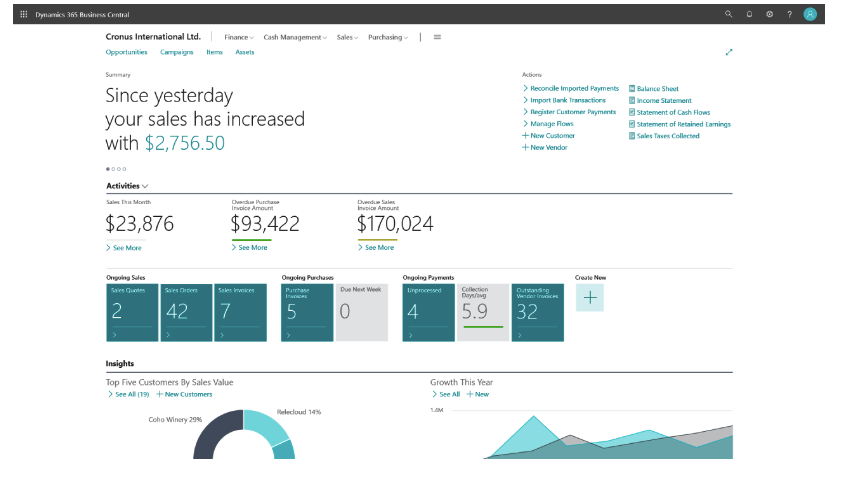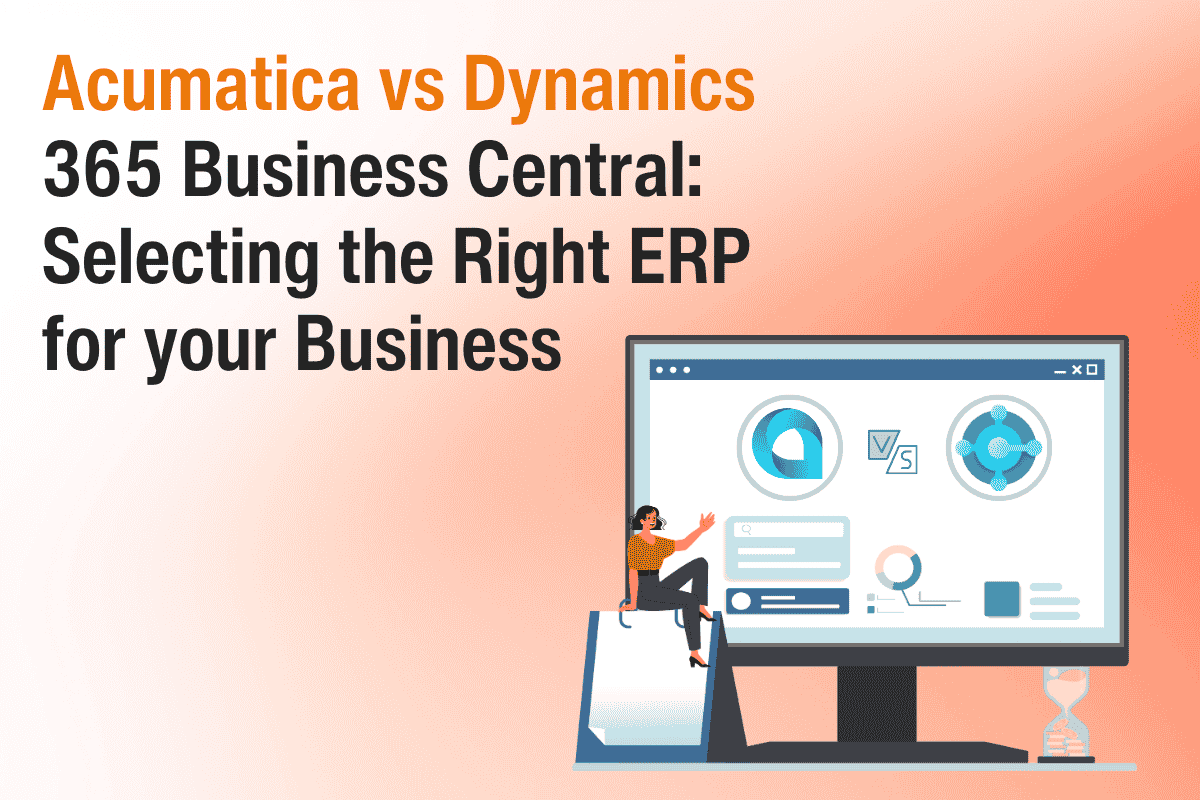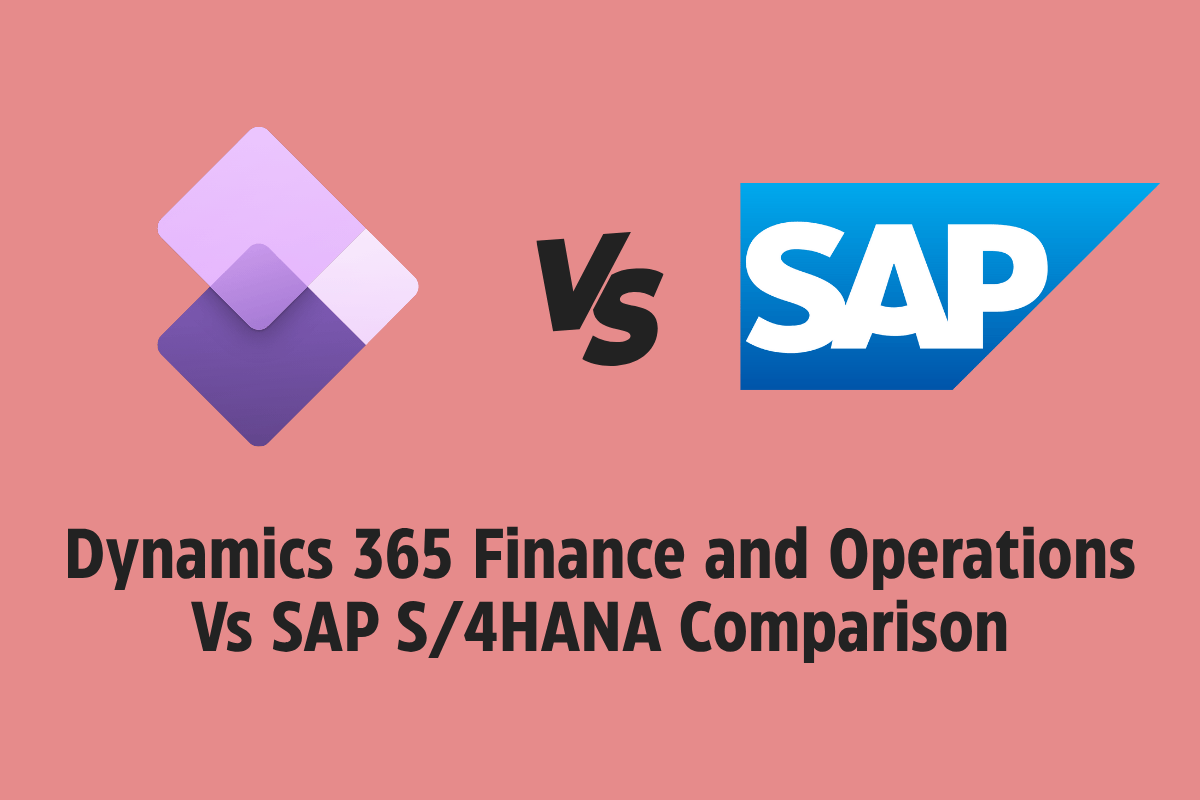Choosing the right Enterprise Resource Planning (ERP) system is a crucial decision for growing businesses looking to streamline operations, enhance productivity, and stay competitive in a fast-paced market.
ERP solutions like Acumatica and Microsoft Dynamics 365 Business Central offer robust functionality to power your business operations, but how do you determine which system best meets your business’s unique needs?
This blog post will explore both platforms’ features, strengths, and considerations to help guide your decision.
Understanding ERP: A Brief Overview
An ERP system integrates various business functions, such as finance, operations, sales, and inventory, into a single platform, providing a centralised solution for data and process management.
For businesses aiming to improve visibility across departments, drive efficiencies, and facilitate real-time data-driven decision-making, an ERP solution can be a game-changer.
Core Features and Functionalities
Acumatica: Key Features
Acumatica is a cloud-based ERP designed with flexibility and scalability in mind. Known for its industry-specific capabilities, it offers tailored solutions for sectors like manufacturing, retail, distribution, and services. Here are some core features:
- Open APIs and Integrations: Acumatica’s open API framework makes it highly adaptable, allowing businesses to integrate it with a variety of third-party applications easily.
- Industry-Focused Solutions: Acumatica offers specific modules designed for industries such as construction, e-commerce, and manufacturing, enabling users to leverage specialised functionalities out of the box.
- Usage-Based Pricing: Acumatica stands out with its unique usage-based pricing model, where businesses are charged based on resources used rather than per-user. This model can be advantageous for growing teams.

Dynamics 365 Business Central: Key Features
Microsoft Dynamics 365 Business Central is an all-in-one business management solution designed for small to mid-sized enterprises. It integrates seamlessly with other Microsoft products, making it ideal for businesses already using Microsoft tools. Key features include:
- Deep Integration with Microsoft Ecosystem: Dynamics 365 Business Central integrates effortlessly with Microsoft 365, Teams, and Power BI—providing a familiar interface and enhanced productivity for businesses already in the Microsoft ecosystem.
- AI-Powered Insights: Business Central leverages Microsoft’s AI capabilities to offer insights and recommendations, enabling more proactive decision-making.
- Scalability and Flexibility: Business Central is built on the Microsoft Azure cloud platform, providing a robust infrastructure that scales with your business.

Comparing Acumatica and Business Central: Head-to-Head
Usability and User Interface
- Acumatica: Acumatica has an intuitive user interface, with a focus on ease of access across different devices. Its mobile-first design allows users to work seamlessly on smartphones or tablets.
- Business Central: Dynamics 365 Business Central provides a user-friendly interface, especially for companies already familiar with Microsoft’s suite of tools. The experience is consistent across desktop, mobile, and web, allowing users to work from any platform with ease.
Deployment Options
- Acumatica: It offers flexible deployment, available as a cloud-based solution, an on-premises system, or a hybrid model, catering to businesses with diverse infrastructure needs.
- Business Central: Primarily a cloud-based solution, Business Central is also available as an on-premises version, though its full capabilities are best utilised in the cloud environment.
Pricing Structure
- Acumatica: Acumatica’s pricing is unique due to its resource-based approach, which can make it more cost-effective for businesses with fluctuating user numbers. However, calculating total costs requires consideration of transaction volumes, data storage needs, and server requirements.
- Business Central: Dynamics 365 Business Central operates on a per-user, per-month subscription model. This straightforward structure can be more predictable, though it may be more expensive for businesses with a larger user bases.
Industry-Specific Solutions
- Acumatica: With its open API structure, Acumatica offers a high degree of integration flexibility, making it easy to connect with a wide range of third-party applications.
- Business Central: Integration is a significant strength for Business Central, thanks to its seamless compatibility with the Microsoft ecosystem and third-party Extensions, providing businesses with a fully connected, tailored solution.
Support and Community
- Acumatica: Acumatica offers dedicated industry modules tailored for specific sectors, such as manufacturing and retail. These modules provide out-of-the-box functionality designed to meet the unique demands of these industries.
- Business Central: While Business Central takes a more flexible approach by not offering pre-defined industry modules, it provides extensive customisation options and scalability. With two licensing options, Essentials and Premium. Business Central enables organisations to unlock advanced capabilities, particularly for manufacturing and service management needs. Additionally, Microsoft’s expansive partner network offers specialised extensions, enabling businesses to integrate industry-specific tools to create a tailored ERP experience.
Integration and Customisation
- Acumatica: Acumatica provides direct support and boasts a growing user community. However, its community is still smaller than Dynamics 365’s, which may affect the availability of resources and expertise in certain regions.
- Business Central: Microsoft’s vast support network and global partner ecosystem offer robust assistance for Business Central users, along with extensive documentation and a large online community.
Benefits and Limitations
Advantages of Acumatica
- Flexible Pricing: The usage-based pricing model can be beneficial for businesses experiencing rapid growth or seasonal fluctuations.
- Device Agnostic: The mobile-friendly interface is a strength for businesses with field operations.
Advantages of Dynamics 365 Business Central
- Seamless Microsoft Integration: Integration with the Microsoft ecosystem provides a familiar environment, speeding up onboarding and productivity.
- Scalable Cloud Infrastructure: Built on Azure, Business Central provides enterprise-grade cloud security, backup, and scalability.
- Predictable Pricing: The per-user subscription model offers predictable costs, which can help businesses budget effectively.
Limitations of Each Platform
- Acumatica: The pricing structure, while flexible, can lead to unpredictable costs if not carefully managed.
- Business Central: The reliance on third-party add-ons for industry-specific features may increase costs for businesses requiring significant customisation.
Choosing the Right ERP for Your Business
Both Acumatica and Dynamics 365 Business Central have proven capabilities, but your decision should align with your organisation’s specific requirements.
For many businesses, Dynamics 365 Business Central offers a superior solution, especially when considering ease of integration, scalability, and support.
At Mercurius IT, have years of experience working with Business Central implementations and customisation—focusing exclusively on the Dynamics 365 platform to ensure our clients receive expert guidance tailored to their unique business requirements.
With almost 20 years of experience, Mercurius IT brings extensive knowledge in implementing Dynamics 365 Business Central across various industries. Our approach is simple: we work closely with your team to understand your specific needs, ensuring that Business Central is set up to streamline your operations and support your growth strategy.
Is Dynamics 365 Business Central Right for Your Business?
While Acumatica offers robust features, Dynamics 365 Business Central’s integration within the Microsoft ecosystem, scalable cloud infrastructure, and comprehensive support make it a strong choice for growing businesses.
Choosing the right ERP goes beyond just features—it’s about aligning with a platform that supports your business goals. Mercurius IT’s focus on Dynamics 365 Business Central ensures that you receive tailored, expert support from a partner committed to your success.
Start your ERP journey with Mercurius IT
ERP selection is a strategic decision that can shape your business’s future. At Mercurius IT, we’re here to guide you through every step of implementing Dynamics 365 Business Central, ensuring it aligns perfectly with your operations and growth strategy.
If you’re ready to take the next step towards a more efficient, connected, and scalable ERP solution, call us today.
Our team will work with you to determine the best way forward with Dynamics 365 Business Central, designed to support your success today and in the future.







